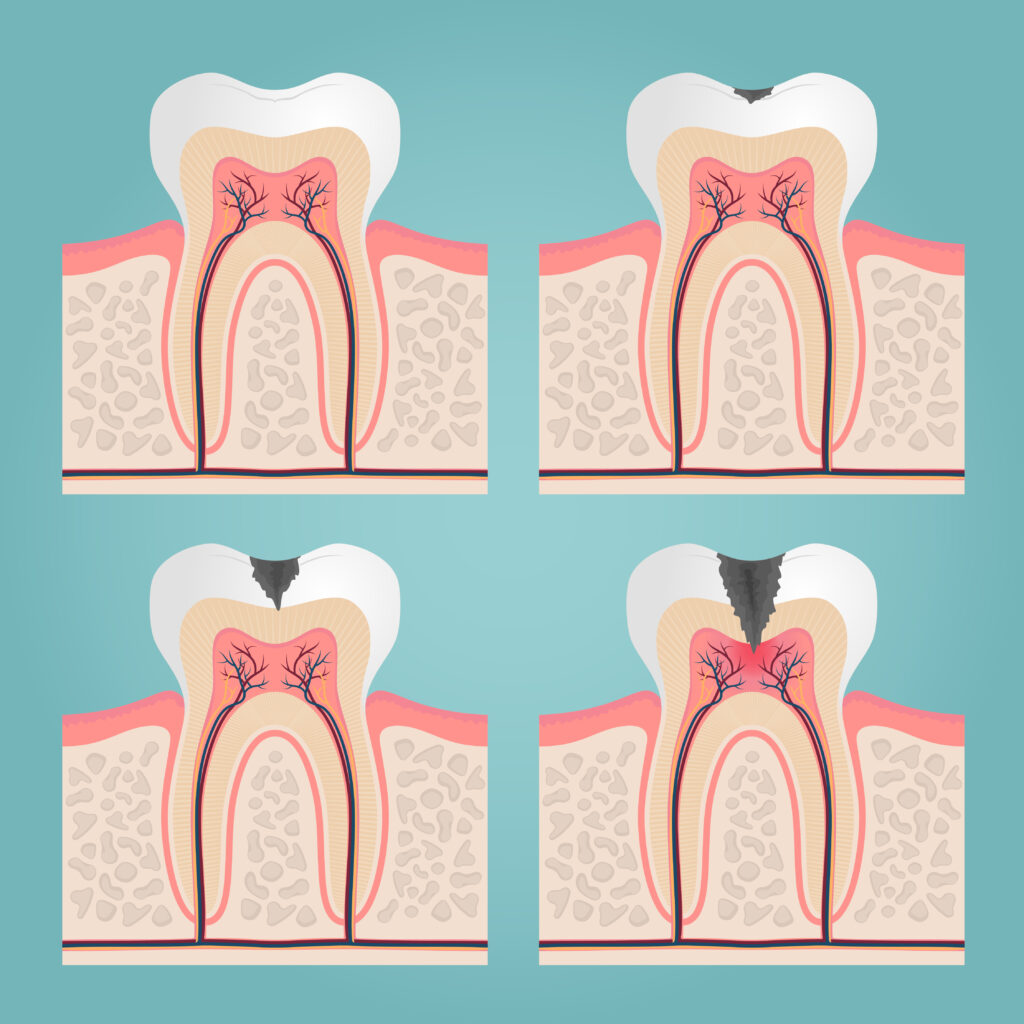Introduction
When it comes to oral health, the question of whether cavities are influenced by our genetics has intrigued both researchers and individuals seeking to understand the complexities of dental wellness. Amidst the routine brushing, flossing, and dental check-ups, a growing body of scientific research has prompted an exploration into the potential role of genetics in our vulnerability to cavities. In this comprehensive article, we embark on an enlightening journey to dissect the intricate interplay between genetics and tooth decay. We will delve into the latest scientific insights, explore the genetic factors that may contribute, and provide practical strategies to maintain optimal oral health.
The Genetic Component
Genetic Predisposition: Insights from Twin Studies
The age-old debate of nature versus nurture extends its arms to the realm of cavities, as researchers strive to uncover the genetic aspect of tooth decay. Twin studies, particularly involving identical twins who share the same genetic blueprint, have unveiled a remarkable resemblance in their susceptibility to cavities. This tantalizing discovery suggests that genetics might indeed contribute to the propensity for tooth decay. However, it’s crucial to recognize that while genetics may set the stage, environmental and lifestyle factors wield substantial influence.
Genetic Variations: Unraveling the Blueprint
Taking a closer look, scientists have identified specific genetic variations that might heighten an individual’s vulnerability to cavities. Enamel, the protective shield of our teeth, is under the influence of numerous genes. Mutations within these genes can compromise enamel strength, making teeth more prone to decay. Moreover, genes associated with saliva composition and pH balance can influence the mouth’s capacity to fend off bacteria that lead to cavities.
Deciphering the Balance
Genetics and Environment: A Symbiotic Relationship
While genetics provide the groundwork, our environment plays an instrumental role in shaping our dental health. Dietary choices, oral hygiene practices, exposure to fluoride, and regular dental care collectively contribute to the overall state of our oral wellness. Even if genetics predispose individuals to cavities, a holistic approach has the potential to significantly mitigate their impact.
The Nutritional Connection: Nourishing Our Teeth
Our diet profoundly influences dental health. Foods and drinks rich in sugars create an ideal environment for cavity-causing bacteria to thrive. Opting for a diet abundant in fruits, vegetables, whole grains, and dairy products not only bolsters overall health but also furnishes the teeth with essential nutrients that promote strength and resilience.
Fluoride’s Defender Role: Empowering Our Teeth
Fluoride, a natural mineral found in various water sources and dental products, emerges as a stalwart ally in the fight against cavities. By reinforcing enamel and facilitating the remineralization process, fluoride effectively acts as a barrier against decay. Incorporating fluoride toothpaste into daily oral care routines and considering professional fluoride treatments can significantly enhance the teeth’s defensive mechanisms.
Nurturing a Dental Future
Prevention Takes Center Stage
In the ongoing dialogue between genetics and environment, a proactive stance emerges as the linchpin. While genetics may influence our susceptibility, the onus lies on our choices and actions to shape our dental health trajectory. Regular dental visits, consistent oral hygiene practices, and a conscientious diet become potent tools in the battle against cavities.
A Holistic Perspective: Harnessing the Power of Collaboration
Rather than perceiving genetics as an absolute determinant, it’s essential to view them as a contributing factor within a broader context. Genetic predisposition lays the foundation, but it’s our decisions and habits that ultimately determine the outcome. By collaborating with dental professionals and embracing a holistic approach, we navigate the intricate dance between genetics and oral health.
Frequently Asked Questions About Genetics and Tooth Decay
Q: Are cavities solely attributed to genetics?
No, while genetics play a role, lifestyle factors such as oral hygiene and diet are equally pivotal contributors to the development of cavities.
Q: Can cavities be prevented even if they run in the family?
Absolutely, a robust oral care routine and mindful dietary choice can considerably reduce the risk of cavities, even with a genetic predisposition.
Q: Do some individuals possess natural resistance to cavities?
Yes, certain genetic variations may enhance natural resistance, but maintaining excellent oral hygiene remains a cornerstone of cavity prevention.
Q: Can genetic testing predict an individual’s risk of cavities?
Currently, genetic testing for cavity risk lacks reliability. Regular dental visits and adopting a healthy lifestyle remain the most effective preventive measures.
Q: How frequently should one visit the dentist to prevent cavities?
Regular dental check-ups every six months are recommended for both preventing cavities and addressing any oral health concerns promptly.



